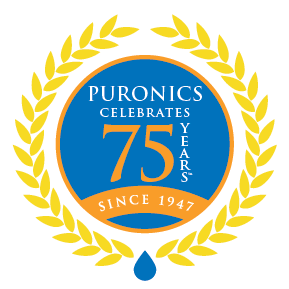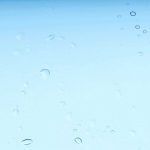Last Updated on August 26, 2021
Whether you have been living in your home for years or have just recently moved in, you may notice that something is not quite right with your water supply. Maybe it smells funny, tastes strange or perhaps you are getting unpleasant stains in water fixtures such as your toilet bowls. If you notice any of these issues popping up and staying persistent, you may have hard water flowing throughout your home. If you suspect that your water is hard, it is essential to learn the signs, understand the dangers and know the solutions to remediate your water issues.
What Is Water Hardness?
Hard water is when your water contains high dissolved mineral content, consisting of calcium, magnesium and sometimes other divalent and trivalent metallic elements. The term “water hardness” comes from the fact that the water is hard to wash with because when combined with soap it creates an insoluble curdy substance rather than a lather.
When it comes to testing the quality of your water, professionals use a hardness level measurement. As a general guideline for ideal water hardness, water that contains 0 to 60 mg/L (milligrams per liter) calcium carbonate is considered soft, which is optimal. Moderately hard is 61 to 120 mg/L, 121 to 180 mg/L is hard and over 180 mg/L is classified as extremely hard, which you will definitely want to remedy.
Hard Water Effects on the Body
Even though drinking hard water is not typically unhealthy, the effects of water hardness on your body are undesirable. One of the most common issues you may notice is skin irritation, and it can exacerbate eczema and psoriasis. This is because hard water dries out your skin due to the presence of a high concentration of minerals and soap film left behind. On top of that, hard water can dry out your hair as well, causing hair breakage and even hair loss.
Hard Water Effects on the Home
Calcium and magnesium salts are the culprits for scaling in pipes and water heaters – and an overabundance can cause numerous appliance problems. As the minerals dissolved in the water pass through the pipes and plumbing, it will begin to build up and start restricting the water flow. This scale from hard water can drastically damage appliances, make them less effective and wear them down over time. If you do nothing about your hard water issue, then plan to spend a hefty amount of money replacing your appliances that use water (dishwasher, ice machines, washer, etc.).
What is a Water Softener?
Okay, so let’s say you have determined by now that you have a hard water problem. Now what? The best way to fix the issue is by making the water soft again. You can do this by investing in a water softener. A high quality water softener is a device that goes through a filtration and ion exchange process to eliminate the calcium and magnesium from your water. During watering softening, the hard water will be forced to pass through the mineral tank, where it will meet resin beads.
Resin beads are usually made from polystyrene and are charged with a sodium ion. Since they are negatively charged, and calcium and magnesium minerals have a positive charge, they attract. When the water passes through these beads and the minerals draw them, the beads grab the mineral ions and take them out of the water, stripping the water’s hardness and making it soft again.
How do you Know if you Have Hard Water?
There are quite a few different ways to tell if you may have hard water in your home. Though proper tests by a professional will give you the best determination, keep an eye out for any of these distressing signs:
- Your Dishes Are Spotty – If you have a dishwasher and noticed that your dishes have chalky streaks and spots, it means that there is soap being left behind during the rinsing process. Hard water has a hard time rinsing off soap and detergent, which makes this a clear sign that something may be off with your water quality.
- Buildup of Soap Scum –If you find that there is more soap scum buildup in your tub, shower or tiles, it could mean you have hard water. Keep in mind that soft water can cause this as well, but hard water makes it accumulate much more quickly.
- Laundry Concerns – Since you now know that hard water is not great at rinsing soaps away, then it should stand to reason that this issue can show up in your laundry as well. Along with detergent residue on your clothes, hard water can also prematurely dull your brightly-colored fabrics and can make clothes feel scratchy and stiff. In addition, you may find that your appliances will begin to function less adequately and may even need to be replaced due to the scale buildup.
- Troublesome Showers – On a more personal level, you may find that the simple act of taking a shower becomes a problem. Hard water makes it difficult to get shampoo and conditioner lathering off your hair and skin, which can be quite frustrating.
- Dry Skin –Since the soapy film is hard to rinse away, it can cause skin problems if left behind and is sitting on your skin. This leads to dry and irritated skin that would otherwise not be there if your water was soft.
- Funny Taste – If you drink water right from the sink and it tastes “funny” or unusual, it may contain hardness. People who have had hard water describe the water tasting and/or smelling metallic, sulfuric or sour.
Hard water can be a real hassle, especially for new homeowners who are unfamiliar with the issues this problem can cause. Knowledge is power, and you should always be aware of your home’s water supply to ensure it is clean, high in quality and soft. Understanding what hard water is and how to remediate the issue through treatment will help you in reestablishing quality water and promoting a much healthier home environment. Request a free consultation with an expert to find out what solution is best for you.
© 2021 Puronics All Rights Reserved

 Puronics, Incorporated
Puronics, Incorporated




Thank you for explaining that if your dishes are spotty, you could have hard water. I was doing the dishes last night and noticed some chalky spots on some of our silverware. I’ll start lookin into getting a water softener to help combat this.